A walk with a child to the park can become a real research expedition if you sketch along the way everything interesting that catches your eye. But we must prepare for the expedition. For example, having made several walks without any research purpose and having learned to draw something that can be useful during a fairytale journey - animals, birds, plants. There are probably ducks in the nearest body of water. You can start with them.
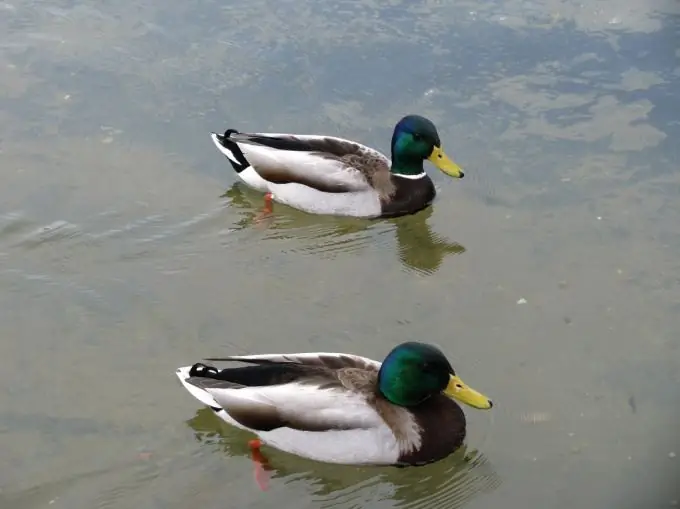
Instructions
Step 1
Start drawing lesson by looking at pictures. See what geometric shapes the duck's body parts look like. The body of a swimming duck is an oval. The bird's head is also oval, the neck is not very thick and of medium length. The duck has a triangular tail. When she swims, her paws are under water, so they are not visible.
Step 2
Start drawing from the torso. Draw an oval. It should be longer in length than in width. However, if you are then going to draw a duckling from a cartoon, the oval will need to be "put" vertically or obliquely.
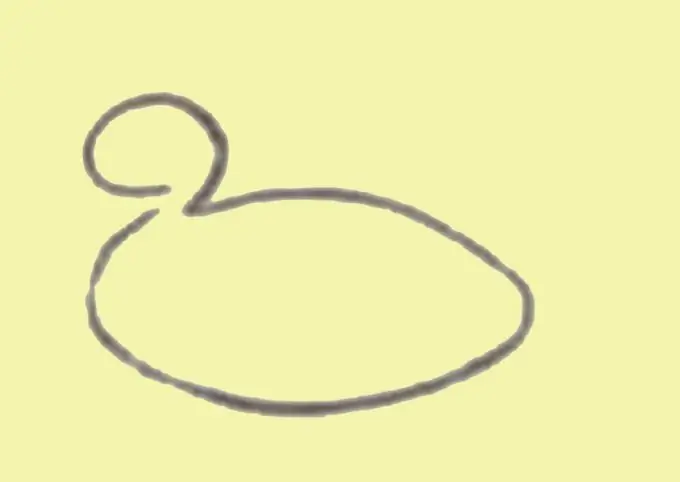
Step 3
Draw the neck. It looks a bit like a tall, thin trapezoid with rounded bases. Remember only that the trapezoid should not be too long, otherwise you will not get a duck, but a goose. In a swimming duck, the neck deviates slightly back.
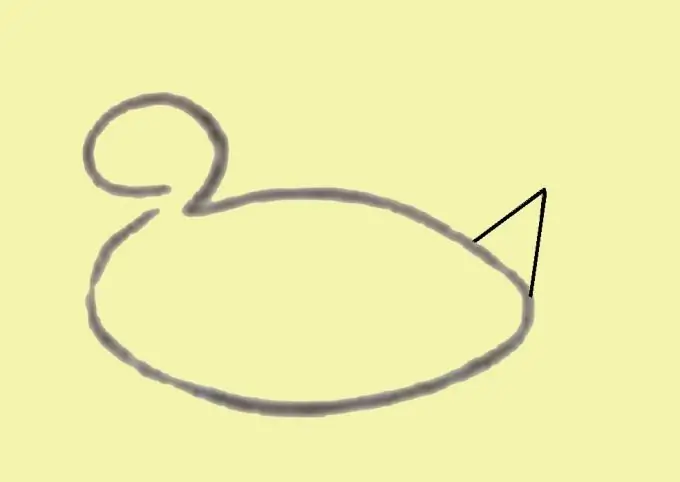
Step 4
Draw the head. In a duck, the head is almost equal in size to the body, in an adult duck it is much smaller, about 1/3 the size of the body. The beak of a duck is a rather long rectangle with a rounded edge or an oval. You can even make two rectangles diverging from one point, as if its beak is open.
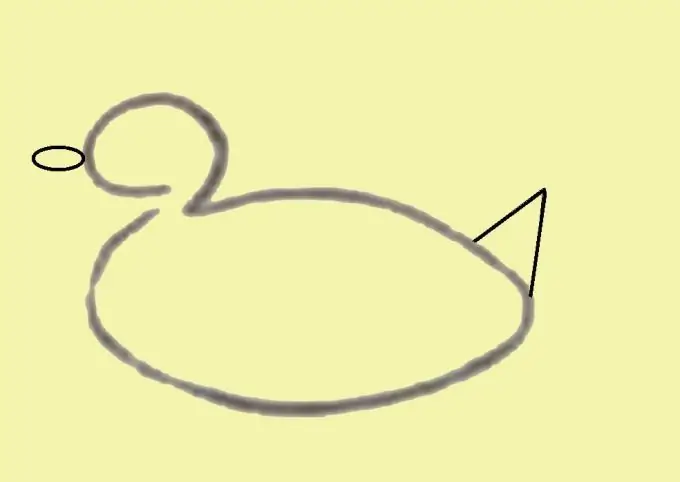
Step 5
Draw a round eye on the head. The second eye is not visible because the duck is sideways to you. You also see only one wing. Draw it. It can simply be denoted by a line parallel to the lower torso line.
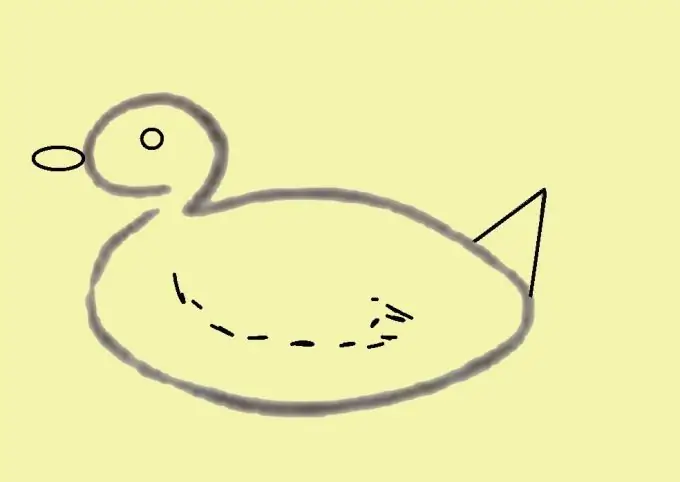
Step 6
Draw something for the duck. These can be waves or reeds with frogs sitting in them. Color the picture. It is better to start painting on large surfaces - for example, sky and water. If you are painting with watercolors, large surfaces can be covered with a sponge. Then color the duck, being careful not to go beyond the lines. Lines can be slightly emphasized with a thin brush, colored pencils or crayons.






